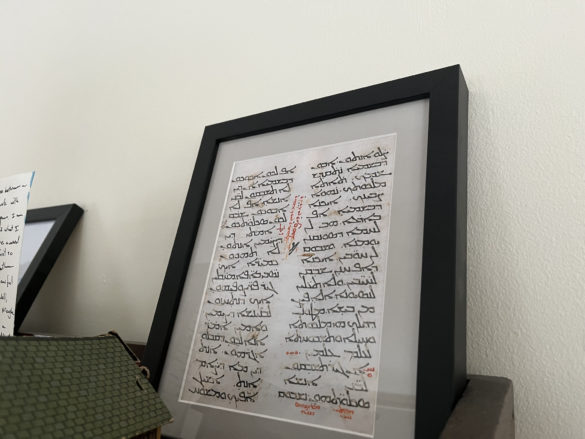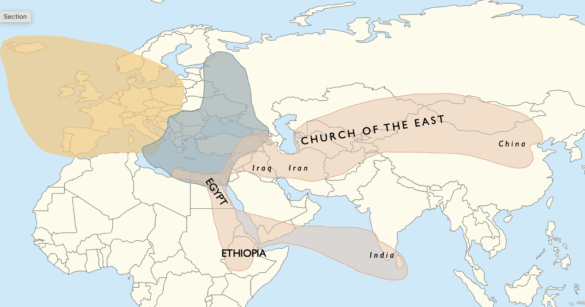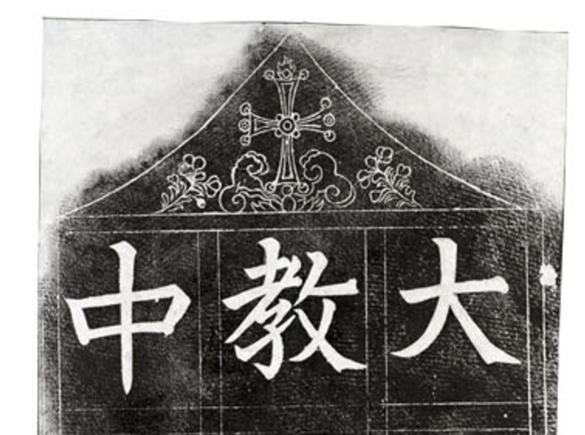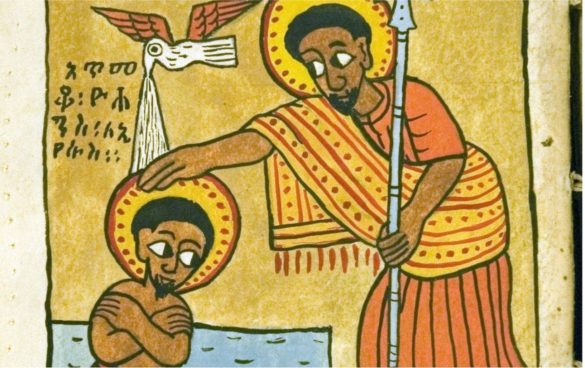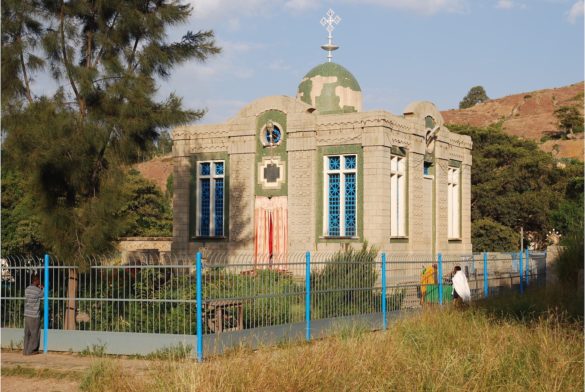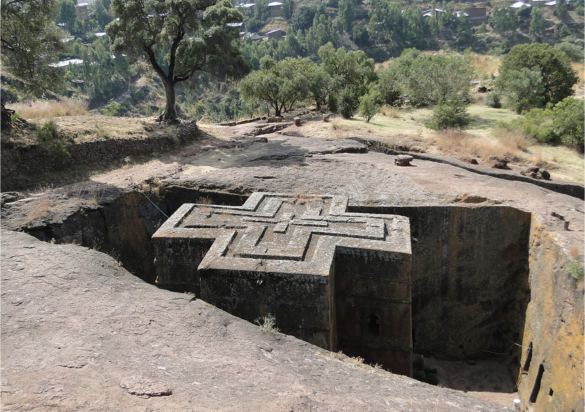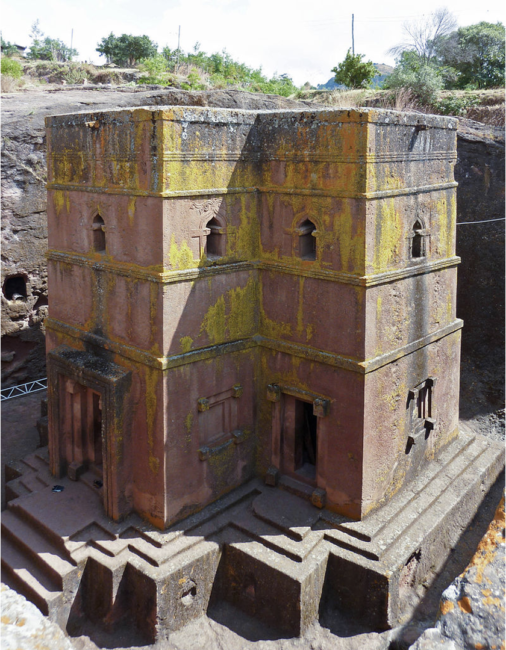Sermon — February 5, 2023
The Rev. Greg Johnston
Last week, Alice Krapf sent me a copy of the Rev. Philo Sprague’s sermon on the 50th anniversary of St. John’s: the Sunday fifty years to the day after the first service this church celebrated on January 5, 1840. On that first Sunday, that first congregation was made up of about 75 people, and the church’s first year of ministry was supported financially twenty-four “subscribers,” what we would now call 24 “pledging units,” who were able to employ a part-time priest. This would suggest to me the old saying, “the more things change, the more they stay the same,” with the caveat that the operating budget those subscribers set for that first year—in addition to the money raised to build this church building—was $345.00. It was, I guess, a less expensive time.
Now of course, St. John’s has had multiple Golden Ages since then and multiple periods of struggle and decline. Already by 1890 we’d had our ups and downs. Like many churches, our history has been a rollercoaster—or, if you like math, a sine wave—a story of alternating highs and lows, of times when the church had multiple mortgages on the building without realizing it and times when the Sunday School was full; years when the place wasn’t watertight, let alone warm, and decades when you couldn’t walk down the street without meeting one of the Rev. Mr. Cutler’s devoted disciples.
But throughout it all, there has been one constant fact: No matter how full or empty St. John’s has been, this church has only ever been a tiny fraction of our community, and I can guarantee you that people asked themselves, in 1840 and in 1890, and in 1940 and in 1990, the same question that some of you may have asked yourselves, in moments of reflection: “What can little St. John’s ever do?”
To which Jesus has an answer that is, for once, refreshingly straightforward: “So let your light shine before others,” he tells his disciples, “that they may see your good works and give glory to your Father in heaven.” (Matthew 5:16)
When Jesus says this, and when he tells them that he hasn’t come to abolish the Law and the Prophets, but to fulfill them, he’s thinking of the great Biblical passages he’d grown up reading, like the words of the prophet Isaiah in our first reading today:
“If you remove the yoke from among you, the pointing of the finger, the speaking of evil,” Isaiah prophesies, “then you shall call, and the Lord will answer; you shall cry for help, and he will says, Here I am.” (Isaiah 58:9) “If you offer food to the hungry and satisfy the needs of the afflicted, then your light shall rise in the darkness and your gloom be like the noonday.” (Isaiah 58:9-10) “Your ancient ruins shall be rebuilt, and you shall raise up the foundations of many generations.” (58:12)
“If you remove the yoke from among you… then your light shall rise in the darkness.” Isaiah says. “In this way,” Jesus adds, “let your light shine,” not hidden under a bushel, but on a lampstand, and let it give light to all the people of the world.
Now there’s a way of reading these words from Isaiah that’s about big, societal systems. And it’s not wrong. Isaiah is writing to the people of Israel, to a nation and a society, and he’s talking about their national economic life, not about their personal morals. No, he tells them that God’s own divine favor depends on the quality of their national life. If they “let the oppressed go free,” if they “break every yoke,” if they share their bread with the hungry and let the homeless poor into their homes, then their light shall break forth like the dawn. But if not… A people newly-returned from decades in exile don’t need to hear the “but if not” part of the sentence. They know what it means to walk in darkness. God is addressing the Israelites as a nation, God is demanding social justice and the end of oppression, and all of that is true.
And it is also true, at the same time, that this kind of a reading can be discouraging once you’ve been around as a church for 183 years. Because we, the people of St. John’s, are too small and too few to set much of an agenda for the life of our neighborhood, let alone our commonwealth or our nation. The prophet Isaiah is speaking to the whole people of Israel; but even if you add up all the churches in our neighborhood, all the people who might hear Isaiah speaks these words to us, we are just a few of the people of Charlestown or of Cambridge or of Somerville. And it can be frustrating, or maybe overwhelming, to hear all these demands. We would love to feed every hungry person in our community. We would love to house every unhoused person we see. But we cannot. Even if we pooled all our resources, we could not.
And yet neither Jesus nor Isaiah lays the burden of responsibility for the entire world on us. If you remove the yoke “from among you,” Isaiah says, and those three words make all the difference in the world. It would be nice, I’ll admit, if we could “break every yoke,” as Isaiah says. But we can at least remove the yoke “from among us.” It would be nice if we could feed every hungry person in the world. But we can at least help feed a hungry person who is in our midst. While we always need to keep our sight on the ultimate goal, on the ultimate justice and righteousness of the kingdom of heaven, we cannot let ourselves be immobilized by a sense of being powerless, because there is always something we can do: in our neighborhood or in our church, in our families, or simply within our own selves, to live a little more justly, to share a little more generously, to “let our light shine,” a little more brightly.
And it’s that image, most of all, that I love. Because Jesus doesn’t tell us to become light, when we are something else. And Jesus doesn’t tell us to shine more brightly, or to spread our light throughout the world. He simply tells us to let our light shine. To remove the things that obscure our light. Not to hide it under a basket, but to put it on the lampstand, and to give light to everyone in the house.
Our light is, for the most part, pretty bright. There are always yokes that can be removed from among us, hungry people who can be fed, fingers that are pointed that maybe should not be, but for the most part, our light is bright. Jesus doesn’t tell us that our church is broken. Jesus doesn’t tell us that we’re doing it all wrong. Jesus tells us to let our light shine, to let the world see what a good and a beautiful community this is. And this is the only way that we can change the world: by becoming a community of justice and of peace and of love, by removing the yoke from among us and letting God’s light rise upon us, and letting that light shine into the world.
So, dear people of Saint John’s: “You are the light of the world. A city built on a hill cannot be hid. No one lights a lamp and hides it under a basket, but puts it up on a stand, and it gives light to everyone in the house. In the same way, let your light shine before others, so that they may see your good works and give glory to God in heaven.” (Matthew 5:14-16)
Amen.

